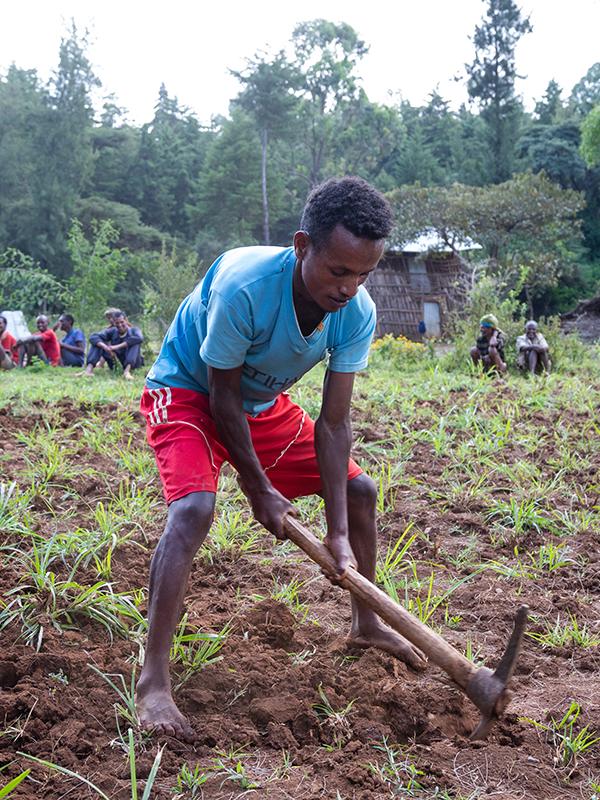Breadcrumb
Improving early child development through pre-school education
Young Lives research shows that attending pre-school has a significant and long-lasting positive effect on children’s development, particularly in terms of foundational skills and learning outcomes.
In Ethiopia, Young Lives has directly informed the roll-out and strengthening of pre-primary education through the large-scale expansion of the ‘O-class’ early child development (ECD) programme. Young Lives has provided targeted advice to the Ministry of Education since 2015 on improving ECD teacher training and the development of an age-appropriate curriculum and teaching materials. Access to O-class pre-primary education has subsequently increased from a virtually non-existent baseline in 2015 to over one million 6-year olds in 2021/22.
Shifting the global debate on opportunities for tackling undernutrition
While concern about child growth stunting has centred on its potential irreversible effects, Young Lives evidence has shown that all is not lost after early childhood with growth recovery possible even up to the age of 15 years, and recovery leading to better performance in cognitive tests and progression through school.
Early malnutrition remains a significant issue in Ethiopia, particularly given recent increases in food insecurity exacerbated by drought and high inflation. Young Lives’ ground-breaking evidence on the long-term impact of improved nutrition on skills development and learning, has informed the Ministry of Education’s school feeding program, which currently reaches over one million children across Ethiopia. These findings have also informed nutrition interventions and programme delivery by organisations including the World Bank, WHO and UNICEF.
Informing policy responses to the impact of COVID-19 pandemic
Young Lives evidence collected through our innovative COVID-19 phone survey has revealed the pandemic is widening inequalities and threatening progress towards meeting the Sustainable Development Goals.
In Ethiopia, we have set out specific policy recommendations to address the impact of a lost year of learning for girls, highlighting the increasing levels of domestic work and risks of early marriage, as well as worsening mental health for girls who had dropped out of education. Young Lives evidence directly underpinned a recent Ethiopia Government Girls’ Education knowledge sharing event hosted jointly with the UK’s Government. Young Lives is the first longitudinal study to quantitatively investigate the significant impact of the current conflict on young people’s mental health, with our results providing strong evidence for the inclusion of targeted mental health support in future post-conflict reconstruction policies and processes.


